It started as a little dot, but it quickly expanded to become a whole galaxy. The .eus is the fastest growing Internet domain in the Basque Country. Its increasing popularity is based on the capacity to differentiate its users and, at the same time, build a community all around the world.
A dream came true in June 2013. ICANN, the corporation responsible for coordinating the Internet address names, gave the green light to the .eus domain. A year before, in May 2012, the PuntuEus foundation had applied with ICANN to have a domain name that would represent the Basque language, culture and community. By December 2014, only 92 websites had a .eus address: nine commercial companies, 23 public institutions, 14 media organizations, and 46 cultural associations. Those paved the way.
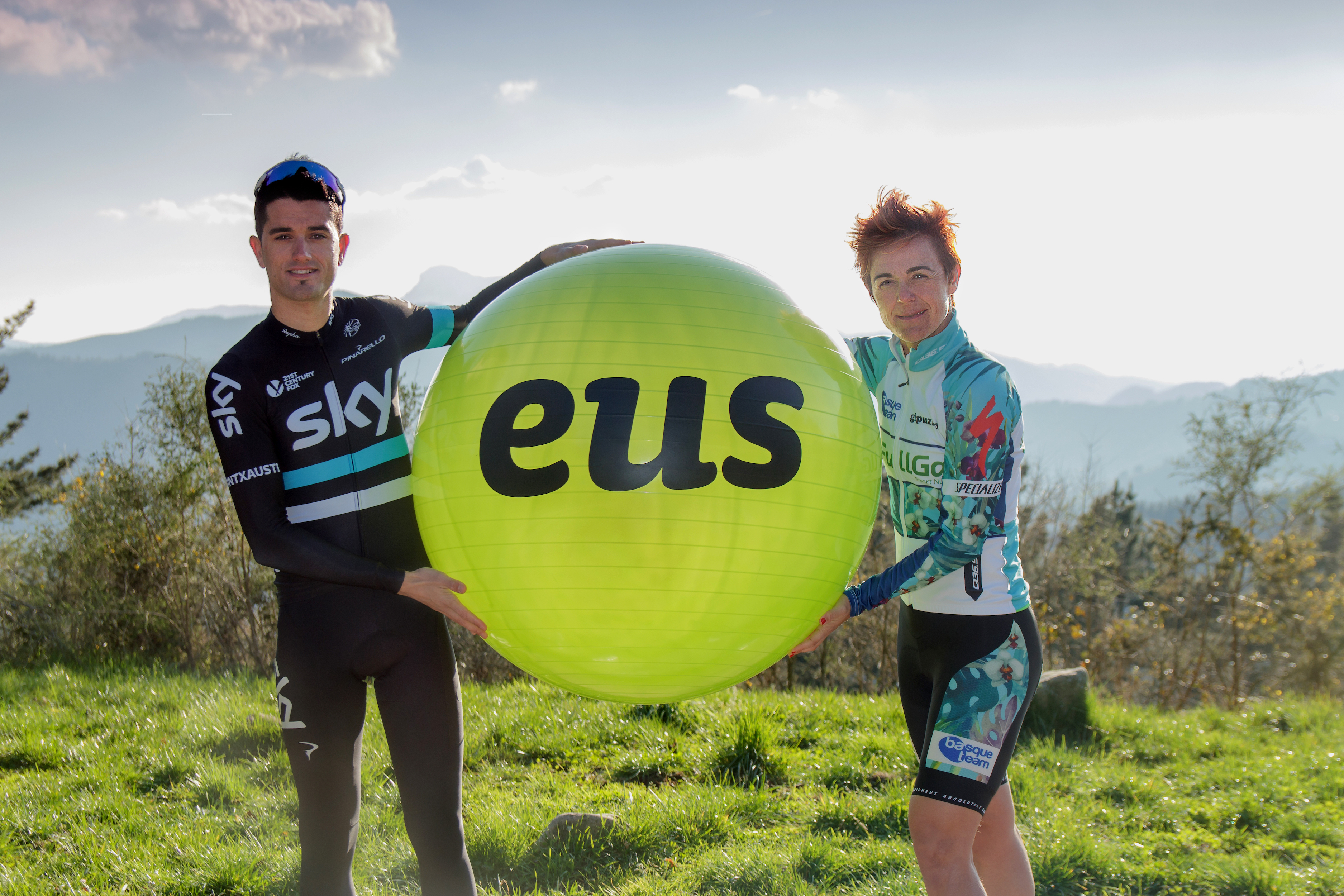
Beñat Intxausti and Leire Olaberria, professional Basque cyclists, promoting the .eus domain. Photo: PuntuEus Fundazioa
The success of the .eus domain has exceeded the expectations of its promoters. In 2014 they set an objective for 2015: 5,000 websites. Last year, there were already more than 6,000. “We are new and it is normal that we grow more than the rest,” said Josu Waliño, PuntuEus foundation’s chairman, “And we expect to keep on growing in the next years.”
Between 2015 and 2016 the .eus growth rate was around 28%. Meanwhile, the other major domains in the Basque Country (.com and .es) were shrinking at about 7%. Only .fr was also growing in the north of the Basque Country.
Domain numbers are decreasing all around the world because in the previous decades people registered their sites in as many domains as possible, to prevent competitors from taking them. Now, people are getting rid of their unused domains, and, in the Basque Country, this opportunity is being used to get a .eus domain to replace the old ones, Waliño explains.
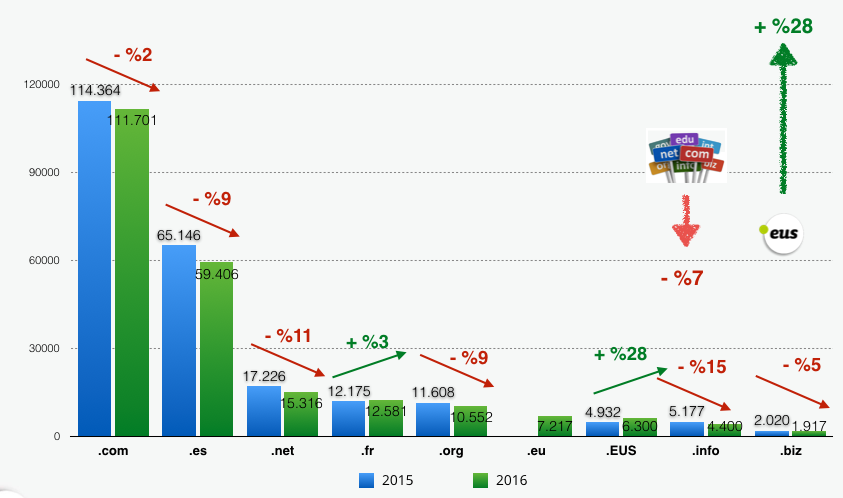
Source: PuntuEUS Fundazioa
However, novelty and global tendencies are not enough to explain this rapid growth. Other culture and community related domains have appeared along with .eus: Scottish .scot, .bzh in Brittany or .gal in Galicia, among others. They don’t show a growth rate comparable to that of .eus. “The Basque are very active on the Internet”, explains Waliño. “Every case is different, but with .eus we see that there is involvement of the whole community.”
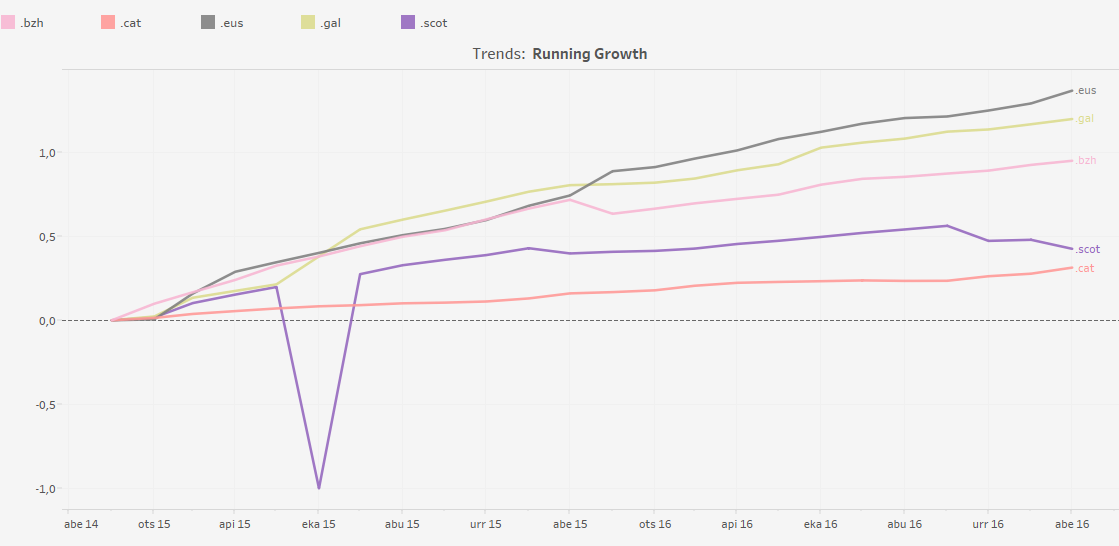
Source: CENTR
The results are proportional to the ambitions, apparently. .eus is now the seventh most popular domain in the Basque Country, and the PuntuEus Fundazioa wants it to become third by 2020. “We think we can, but we also think that we are entitled to it: .eus cannot be a mere 3% symbolic domain.” The challenge will demand a jump from the current 6,300 .eus websites to about 17,000 in three years.
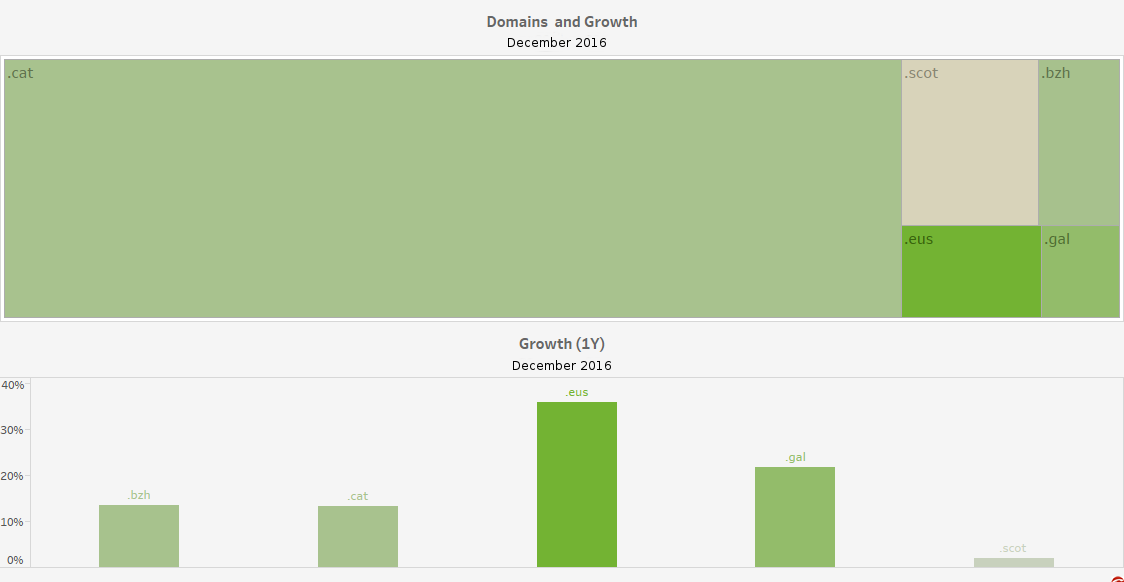
Source: CENTR
Scale economies are already helping them to attain that objective: the rapid growth has allowed the PuntuEus Fundazioa to lower prices. Before, people wanting to register a .eus domain paid 50 euros. Now they can be registered for 29 euros. “This has been very important to us because we know we are expensive, compared to .com.”
Among the registered domains, 34% belongs to commercial companies, 16% is institutions, 18% associations working on the language and culture, and 9% from education. Finally, private individuals account for 5%. The PuntuEus foundation was created in 2007 to promote the use of the Basque language on the Internet, and make it more visible. About one hundred institutions, groups and companies where behind the idea. Now the foundation has the task of organizing and controlling the use of the domain.
My USA Basque Restaurant
The .eus domain is not necessarily linked to the physical Basque Country, it goes beyond it, as Waliño points out. “The .eus domain represents the Basque language and the Basque community in the whole world, not just a territory,” he said. “The .eus is a showroom for the language, so any website that has content in Basque is a clear candidate to have an .eus domain, whether it is a company’s site, a public institution’s, culture agent’s or a Basque diaspora member’s.”
A couple weeks ago, the foundation received an e-mail from a Basque restaurant owner in the United States of America. He was a USA citizen of Basque ancestry, and wanted his restaurant’s website to be a member of the .eus community. His site would be multilingual, including Basque. “We love receiving that sort of message,” said Waliño.
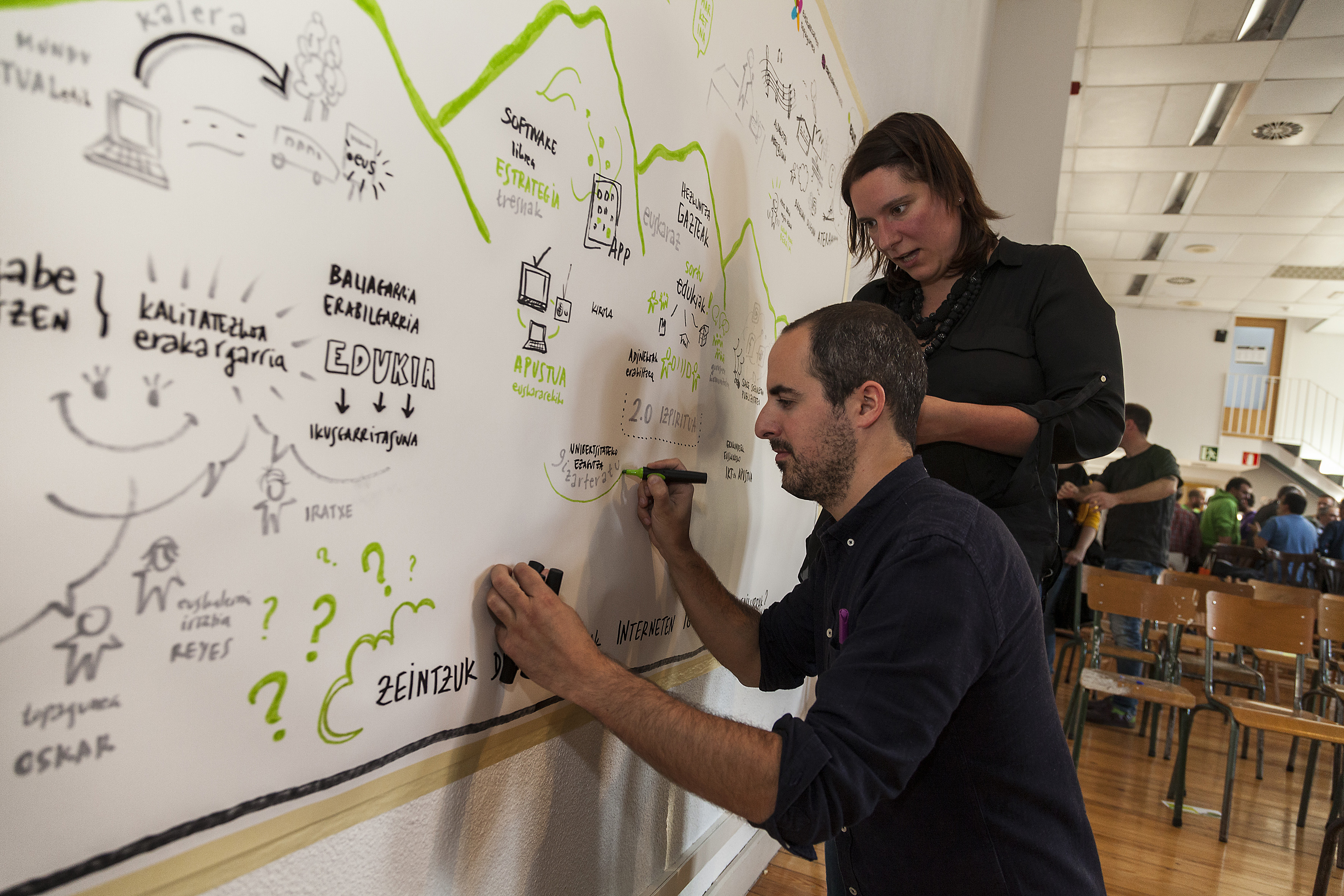
The .eus domain at the first Basque Language Day on Internet celebrated in Pamplona in 2016. Photo: PuntuEus Fundazioa
What happens with those that would like to have a site in the .eus domain but are not able or willing to have some content in Basque? The community also accepts those sites that have some content related to the Basque cultural community, independent of the language. The City Council of Angelu is an example: in spite of having its content in French, it has a .eus address. “When someone wants to be a member of the .eus community, we assume that they have some good reasons for it, so we don’t say no. But later this year, we will start approaching them and telling them that we are ready to help them get some Basque language content on their sites”, said Waliño.
Community building is one of the .eus goals. But in which way can a dot and three characters on somebody’s website address build a sense of community? Waliño explains that a domain name is like a car’s licence plate. About half of the websites on the Internet are .com. “Internet is a gigantic universe, and we are all equal in it: .eus gives you a way to be noticed, it gives you the pride of being different, and lets you take part in a language community.” To differentiate, and, at the same time, to connect, that’s the point.
Last but not least, .eus is also a tool for good publicity in the world. A Basque industrial company that has an .eus website gets questions about it every time they travel abroad to promote sales. This curiosity gives them the chance to explain the working system in the Basque Country, and that the quality standards by which Basque companies work are not those of southern Spain or eastern Europe, but comparable to those of Germany and Scandinavia.
“If the Internet is a universe, .eus is a galaxy within it”, said Waliño. A galaxy that wants to make you feel at home.


Be the first to comment on "The Basque .eus Big Bang"